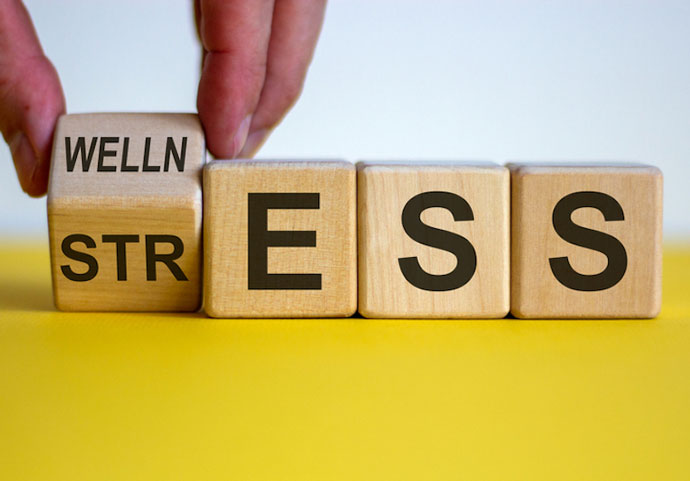Stress is your body and brain’s response to when you believe something you care about is at stake. This means stress can be a valuable tool to help you live out your values, accomplish your goals, strengthen your relationships, and grow and learn from adversity. Yet we often allow stress to get in the way of accomplishing our goals. Save the graphic below as a daily reminder to use your stress response to help you accomplish your most meaningful goals.
To learn more about how you can use stress for good, read HPRC’s article Make Stress Good For You.

Stress as a tool
Use stress as a tool to boost your performance, mental health, resilience, and relationships.
Stress is your body and brain trying to give you the energy, focus, and motivation to address what is most meaningful to you.
Use one or more of these prompts daily to set up your body and mind for success and to optimize your stress response.
- What values do you want to live out today? How can your stress response help you?
- What goals do you want to accomplish today? How can your stress response help you?
- Who are the people you want to care for today? How can your stress response help you?
- What adversities might you face today? How can your stress response help you?
USU logo: Uniform Services University
CHAMP logo: Consortium for Health and Military Performance
Human Performance Resources by CHAMP logo
Website: HPRC-online.org
Published on: May 3, 2022
References
Bai, Y., Bhasin, M. K., Dusek, J. A., Chang, B.-H., Joseph, M. G., Denninger, J. W., Fricchione, G. L., Benson, H., & Libermann, T. A. (2013). Relaxation response induces temporal transcriptome changes in energy metabolism, insulin secretion and inflammatory pathways. PLoS ONE, 8(5). https://doi.org/10.1371/journal.pone.0062817
Chang, B.-H., Dusek, J. A., & Benson, H. (2011). Psychobiological changes from relaxation response elicitation: long-term practitioners vs. novices. Psychosomatics, 52(6), 550–559. https://doi.org/10.1016/j.psym.2011.05.001
Crum, A. J., Jamieson, J. P., & Akinola, M. (2020). Optimizing stress: An integrated intervention for regulating stress responses. Emotion, 20(1), 120–125. https://doi.org/10.1037/emo0000670
Crum, A. J., Salovey, P., & Achor, S. (2013). Rethinking stress: The role of mindsets in determining the stress response. Journal of Personality and Social Psychology, 104(4), 716–733. https://doi.org/10.1037/a0031201
Jamieson, J. P., Nock, M. K., & Mendes, W. B. (2012). Mind over matter: Reappraising arousal improves cardiovascular and cognitive responses to stress. Journal of Experimental Psychology: General, 141(3), 417–422. https://doi.org/10.1037/a0025719
Keller, A., Litzelman, K., Wisk, L. E., Maddox, T., Cheng, E. R., Creswell, P. D., & Witt, W. P. (2012). Does the perception that stress affects health matter? The association with health and mortality. Health Psychology, 31(5), 677–684. https://doi.org/10.1037/a0026743
Smith, E. N., Young, M. D., & Crum, A. J. (2020). Stress, Mindsets, and Success in Navy SEALs Special Warfare Training. Frontiers in Psychology, 10. https://doi.org/10.3389/fpsyg.2019.02962





